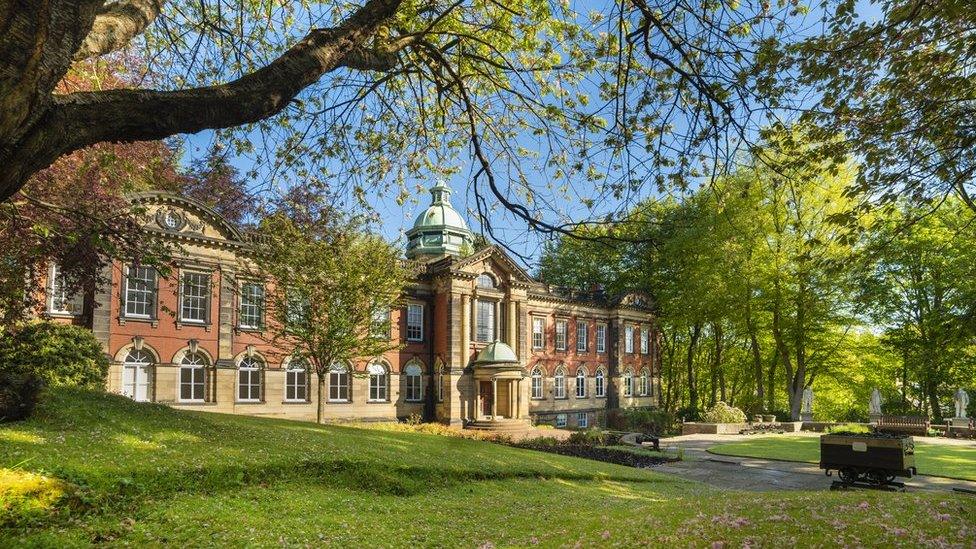Miners' hall reopens after £14m restoration
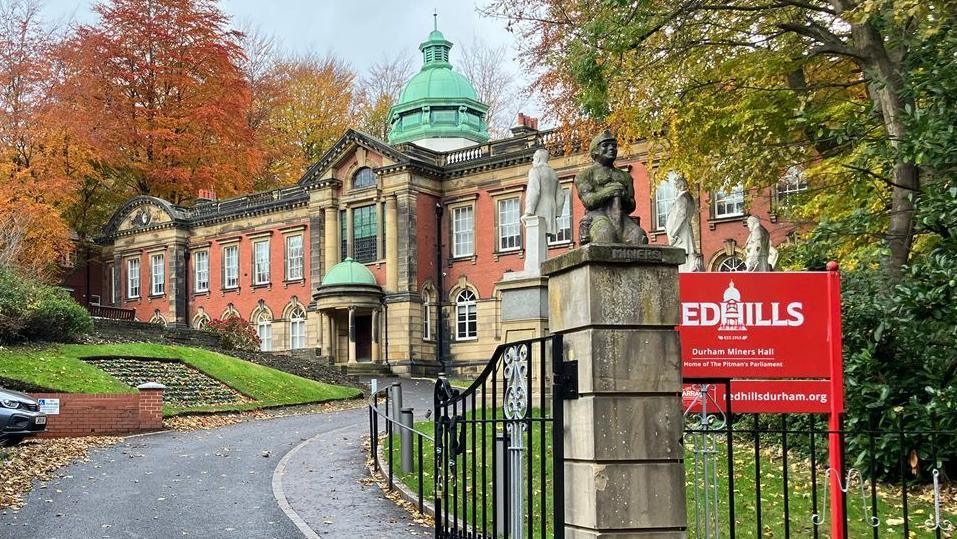
Redhills has undergone three years of restoration work
- Published
A Grade II listed miners' hall has reopened as a heritage and cultural centre after a £14m restoration.
Durham Miners' Hall- also known as Redhills - had served as the headquarters of the Durham Miners Association since 1915 but fell into disrepair after the decline of the coal industry.
The three-year project included the construction of an extension which holds a banner room, a small cinema and facilities to allow the building to host concerts, conferences and community events.
Redhills' head of operations Rob Guest said the hall was a "really revered building, quite often referred to as Durham's other cathedral".
The project at the home of the Pitman's Parliament was meant to cost £8m but took longer and cost more than originally expected, largely due to post-pandemic inflation.
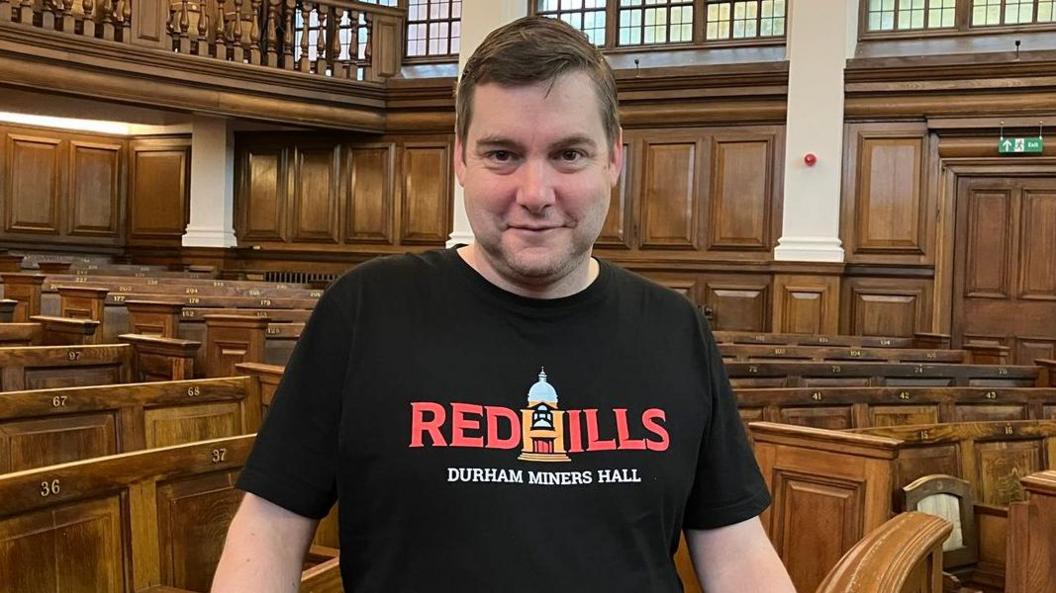
Rob Guest said the aim was to work with more communities at Redhills
"This place isn't just about the past, it's about the future," Mr Guest said.
"We want to work with communities, engage people in all sorts of ways to develop exciting projects."
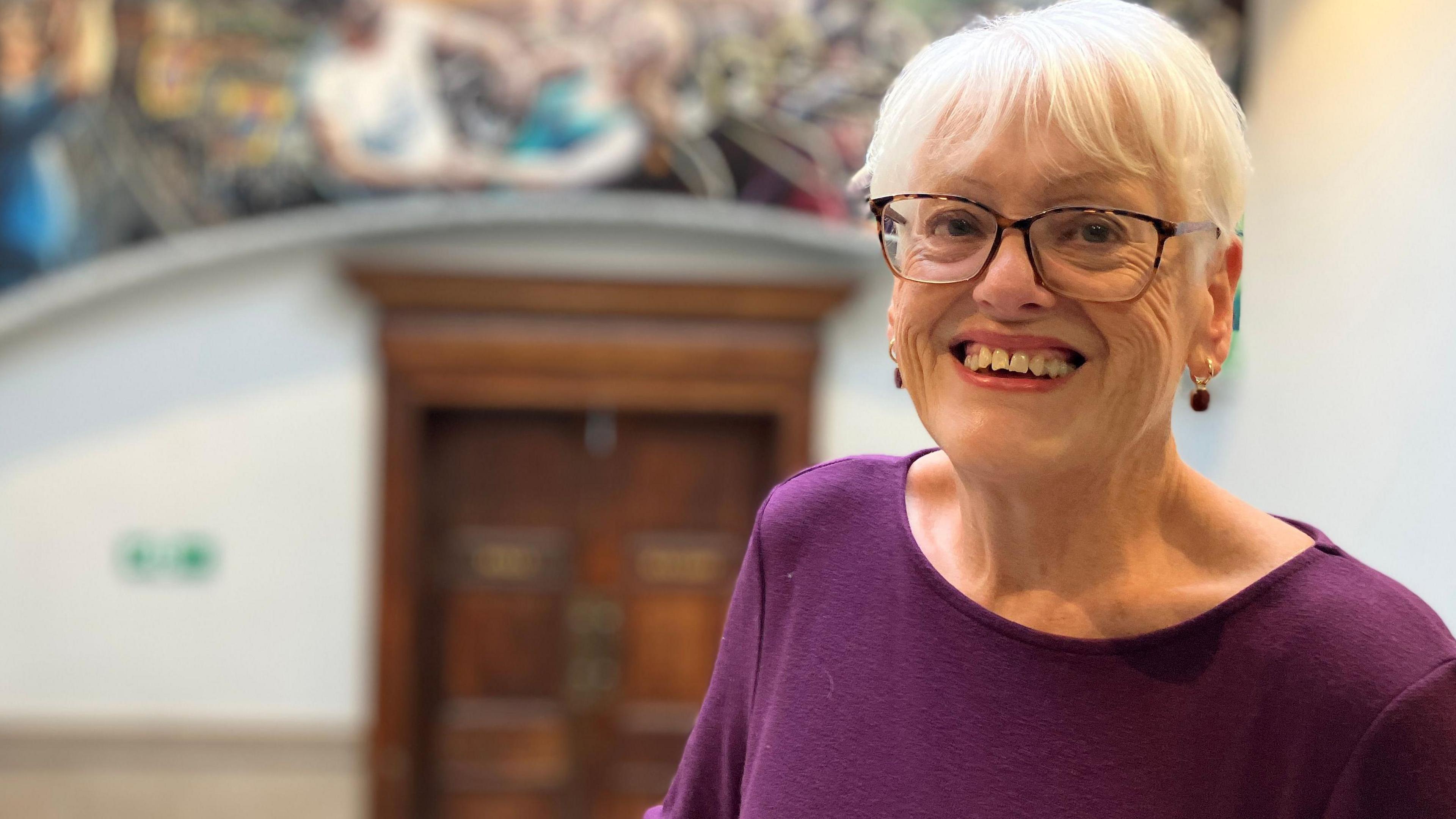
Mary Stratford will be giving tours of the newly renovated building
There will also be regular guided tours for the public.
Volunteer guide Mary Stratford, who comes from a mining family, said Redhills reflected a "massively rich history".
"It's the values that scream out at you and what can be achieved by ordinary people coming together," she said.
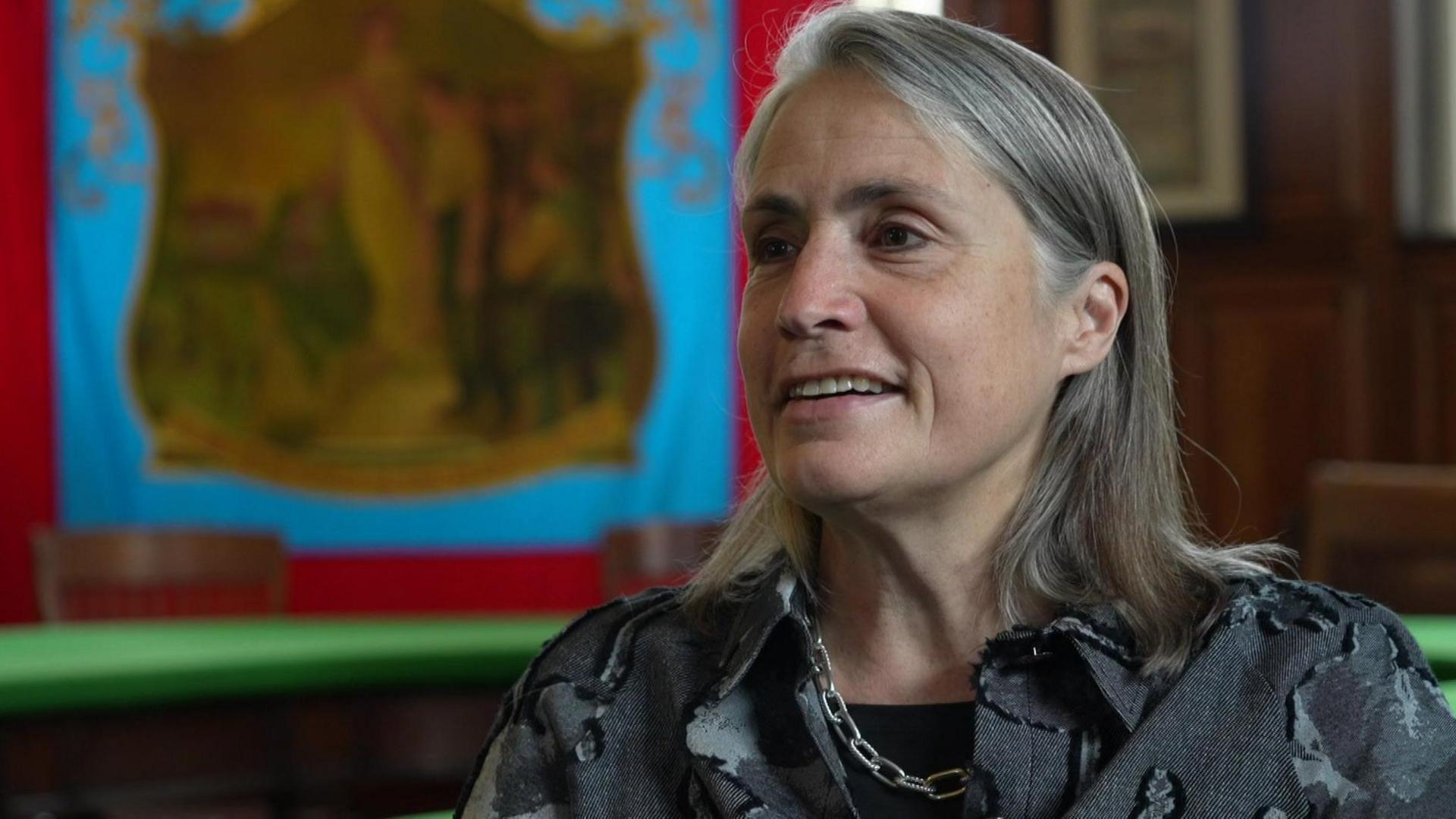
Fiona Hill said Redhills gave her a grant that kickstarted her career
Among recent visitors to the restored Miners' Hall was Durham University Chancellor, Dr Fiona Hill, who spoke at an energy conference.
Dr Hill, a County Durham miner's daughter who served as a foreign police advisor to American presidents, recalled visiting Redhills 40 years ago to apply for a bursary to study Russian.
"They asked me how much did I need. I said, well I need about £100 to pay for this summer course for learning Russian because I was doing it from scratch," she said.
"And next thing, the man who'd come to see us went off, came back and gave me £100 in an envelope.
"I said: 'What do I need to do to follow up on this,' and he said: 'Oh just come back and show us you can speak Russian, pet.'"
Dr Hill said that without the grant she would not have been able to study Russian at university and pursue her career.
Follow BBC North East on X, external, Facebook, external, Nextdoor and Instagram, external.
Get in touch
Do you have a story suggestion for BBC Wear?
Related topics
- Published24 October 2024
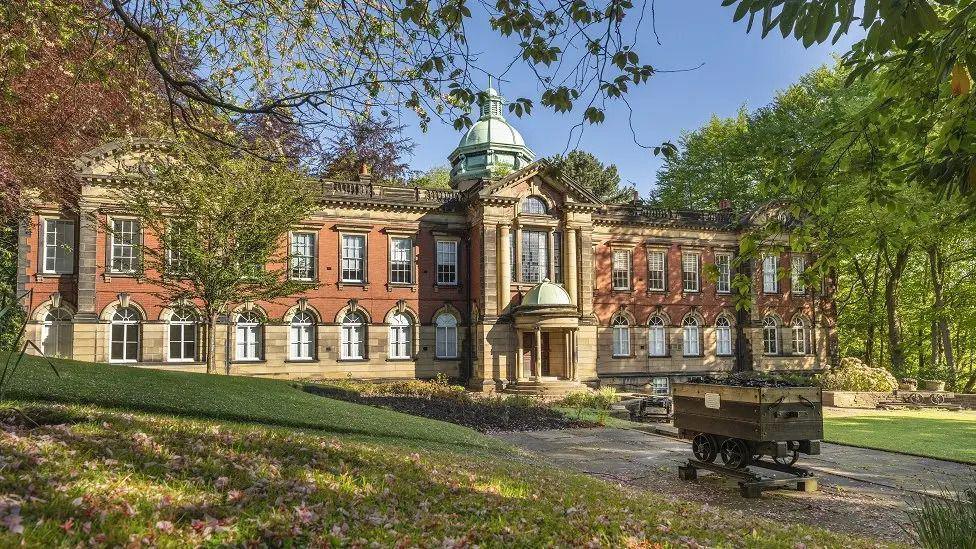
- Published8 March 2024
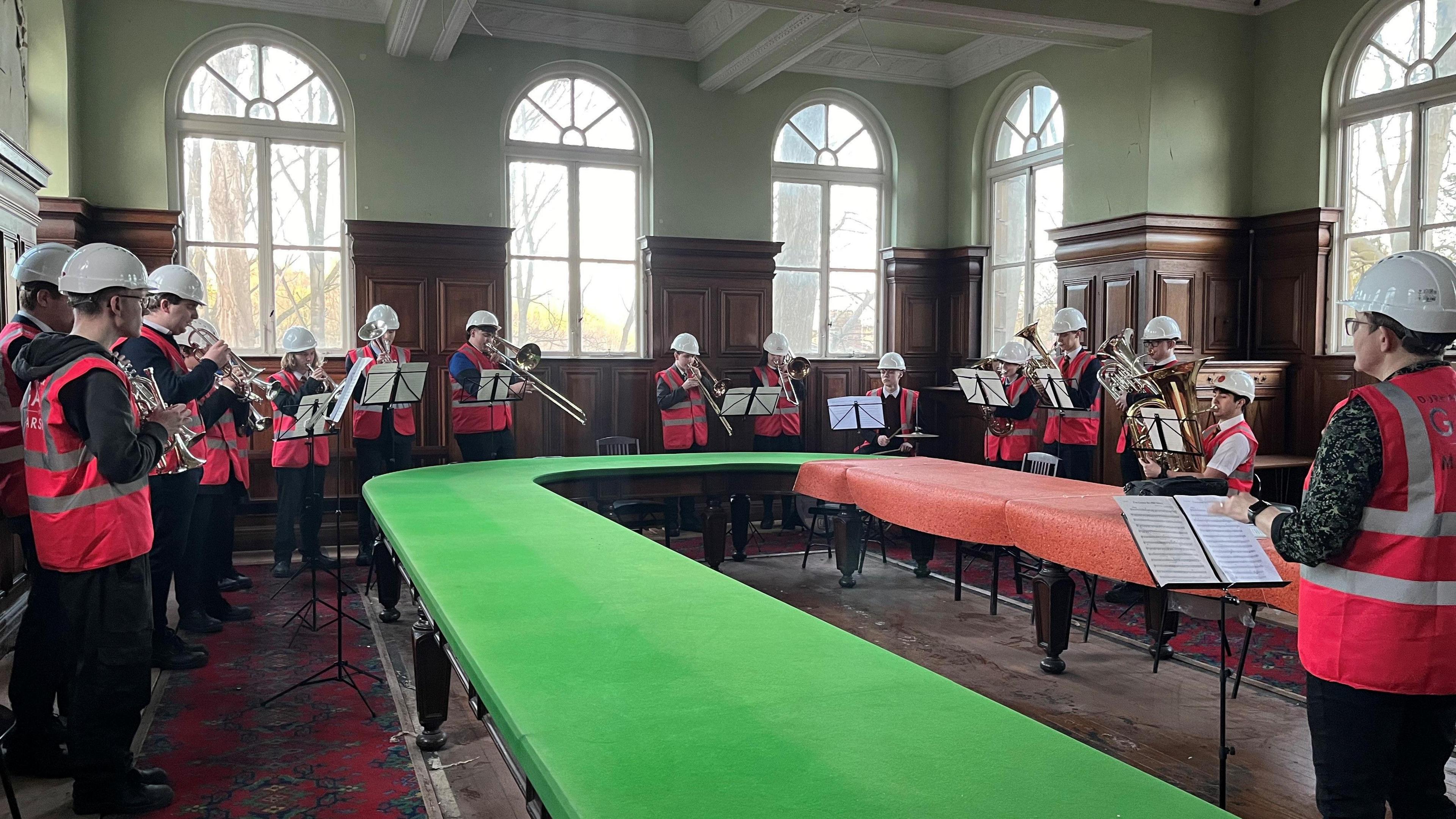
- Published10 March 2020
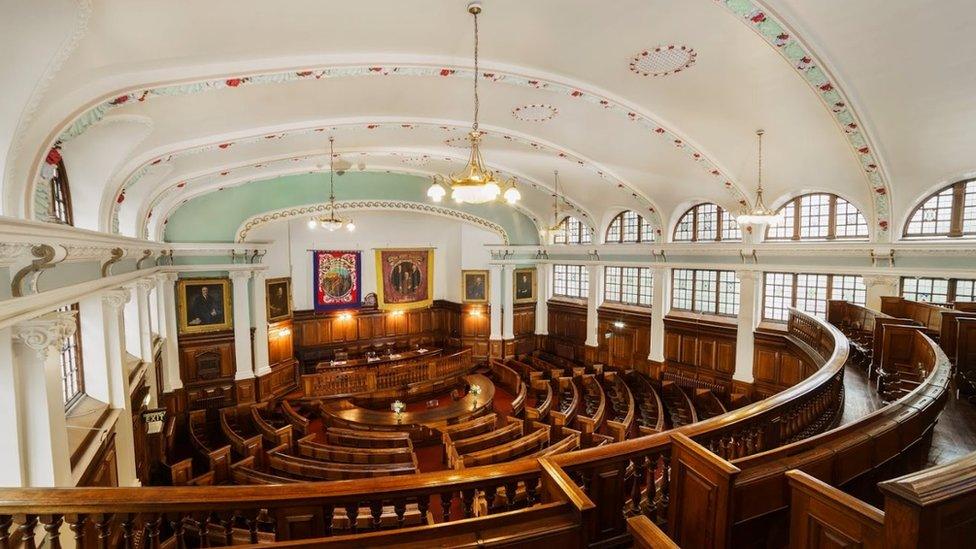
- Published14 July 2019
